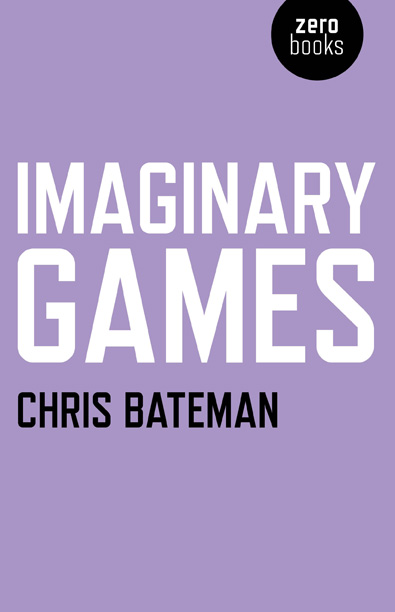Imaginary Games
Can games be art or is all art a kind of game? A philosophical investigation of play and imaginary things.

Can games be art or is all art a kind of game? A philosophical investigation of play and imaginary things.
Can games be art or is all art a kind of game? A philosophical investigation of play and imaginary things.
Aesthetics, Games
Can games be art? When film critic Roger Ebert claimed in 2010 that videogames could never be art it was seen as a snub by many gamers. But from the perspective of philosophy of art this question was topsy turvey, since according to one of the most influential theories of representation all art is a game. Kendall Waltons make-believe theory explains how we interact with paintings, novels, movies and other artworks in terms of imaginary games, like a childs game of make-believe, wherein the artwork acts as a prop prescribing specific imaginings. In this view there can be no question that videogames - in fact, all games - are indeed a strange and wonderful form of art. In Imaginary Games, game designer and philosopher Chris Bateman expands Waltons theory to videogames, board games, collectible card games such as Pokémon and Magic: the Gathering, and role-playing games like Dungeons & Dragons. The book explores the diverse fictional worlds that influence the modern world, the ethics of games, and the curious role imagination plays in everything from religion to science and mathematics.
Click on the circles below to see more reviews
To the extent that Bateman aims to refute Ebert’s claims by treating games with the attention and rigorousness with which he feels they deserve, he succeeds unequivocally. His consultation of source material is nearly exhaustive – literally from A through Z, from Aristotle to Žižek, from the Atari game systems to Zuckerberg’s Facebook – yet the thoroughness of his research is rarely foregrounded due to the lucidity and congeniality of his writing. As someone based outside the academy, Bateman demonstrates splendidly that professorship need not be a prerequisite for scholarship. Fittingly, Imaginary Games is published by Zer0 Books, which is committed to resurrecting the figure of the public intellectual. Chris Bateman, whose scholarship is astonishingly honest, refreshingly cogent, and thoroughly meticulous, earns that title. ~ Allen Zhang, MAKE: A Chicago Literary Magazine
In this well-researched book Chris Bateman explores the ambiguous territory between the fictional and the real, and slays some dragons hiding therein. Highly recommended. ~ Ernest Adams, Founder of the International Game Developers' Association
Chris Bateman’s Imaginary Games may just do for videogames what Noël Carroll’s The Philosophy of Horror did for scary books and movies.... not only philosophically compelling and interesting; it is also a great read. Bateman’s fluency in the relevant philosophical debates and history of thinking about games is both enviable and a pleasure to behold. ~ Jon Cogburn, Director of Philosophy, LSU Department of Philosophy and Religious Studies
A wonderfully refreshing and inventive look at games of many kinds, but especially digital games. It is seriously philosophical, but Bateman, a professional game designer, draws on a huge variety of resources far beyond the writings of academic philosophers - fascinating and fun! ~ Kendall Walton, Charles Stevenson Collegiate Professor of Philosophy and Professor of Art and Design at the University of Michigan